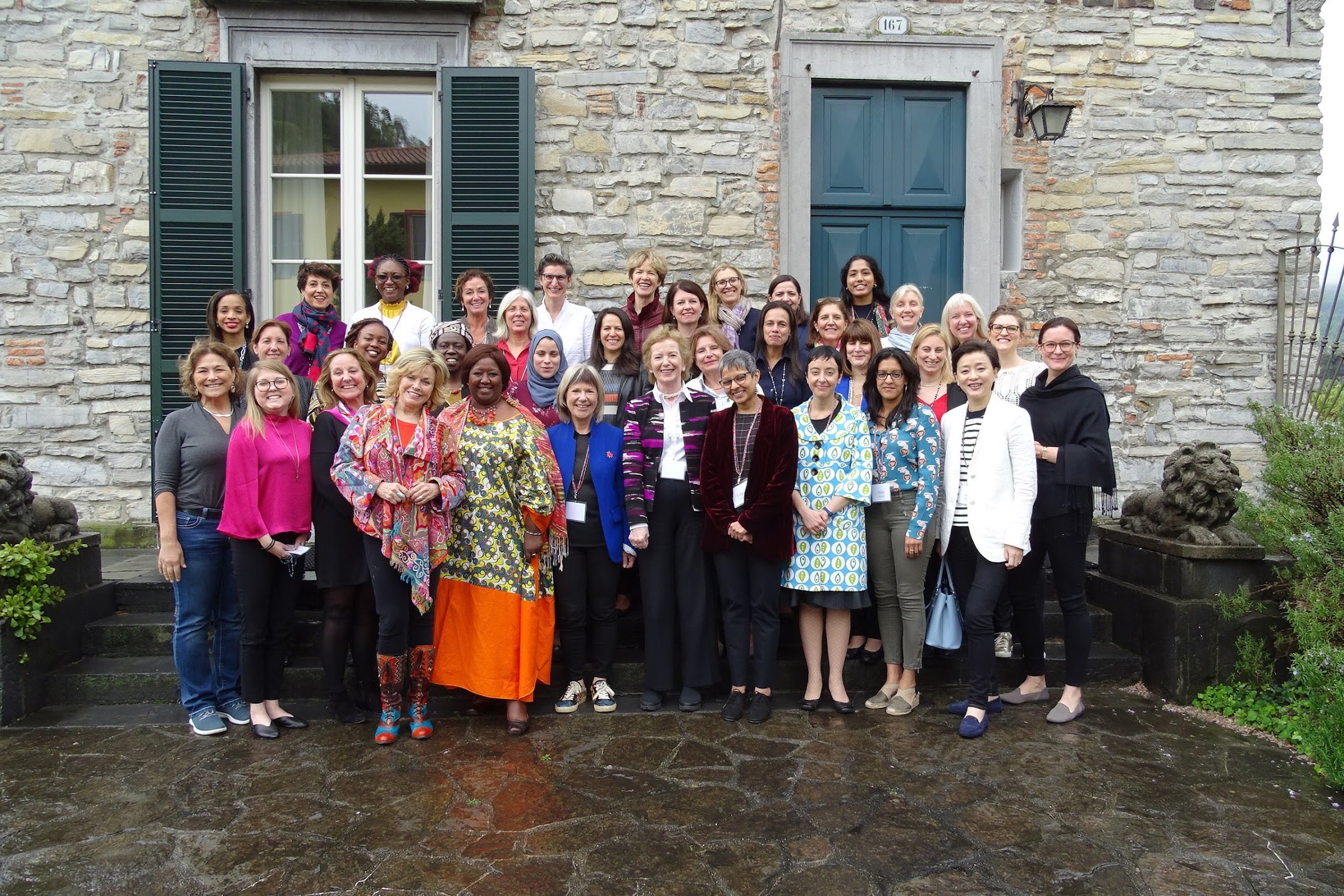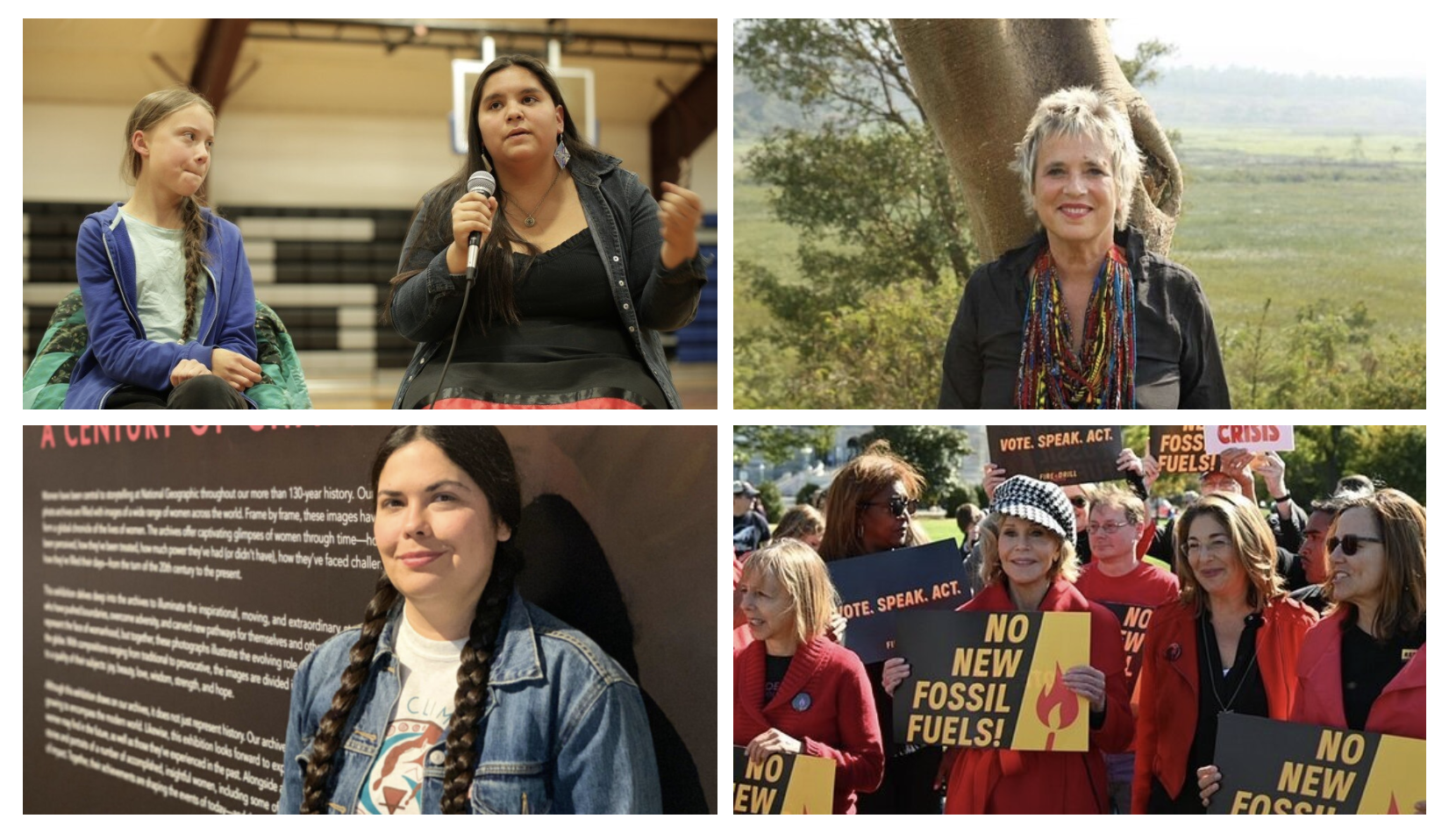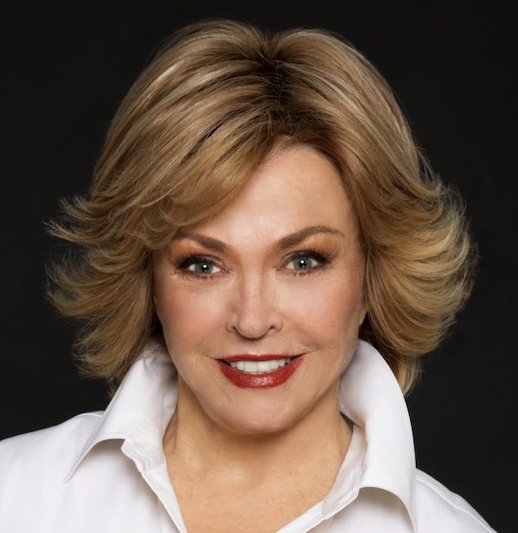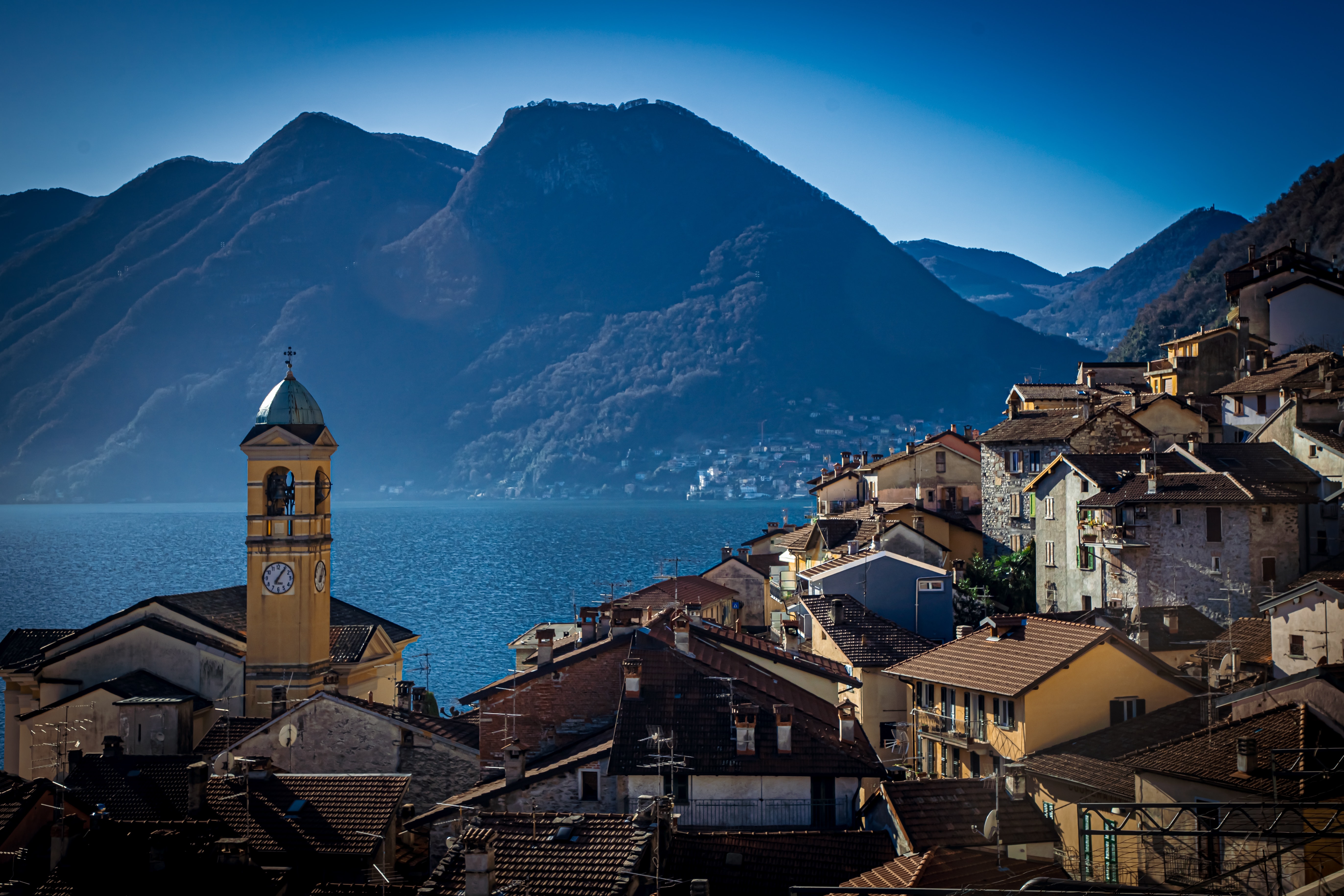A year ago this week, I was at the Rockefeller Foundation’s Bellagio Conference Center on Lake Como, Italy, with the extraordinary group of women leaders in the photo below. We were there for a four-day gathering of Connected Women Leaders (CWL), an initiative that Ronda Carnegie and I launched in 2017 with the Rockefeller Foundation. With this second cohort of women leaders — convened from the frontlines of government, culture, media, the arts, business and civil society from around the world — our purpose was to collectively shape solutions to four areas of global challenges: the climate crisis, food security, economic inequities, and global health, and to work with UNWomen leaders as they began to shape the action agenda for global women’s conferences that were planned to convene in Mexico and Paris this summer.

One of our first Zoom forums featured CWL leaders talking about what lessons we might learn from COVID-19 and apply to the climate crisis. Those global gatherings have been postponed, of course, as has the return to Bellagio of the Connected Women Leaders for another forum to continue our work of shared learning, strengthening alliances and partnerships, and problem solving. But the work continues, virtually… for many of us as we are convening forums on Zoom almost weekly to explore the connections between a global pandemic and other urgent threats — climate, food security, economic disparities, increasing violence against women and the disproportionate adverse impact of Covid-19 on the already most vulnerable communities of color and, as is often the case, on women and girls everywhere.
Our panel included former president of Ireland, Chair of the Elders and author of Climate Justice, Mary Robinson, Project Drawdown’s Dr. Katharine Wilkinson, #FridaysforFuture and #WeThePlanet youth activist Xiye Bastida, Exposure Labs Director of Programs Megha Agrawal Sood, and Hindou Oumarou Ibrahim, co-chair of the International Indigenous Peoples Forum on Climate Change. You can watch the panel here.
Later this week, we are diving deeper into the subject of climate justice with all of these leaders, plus two important activists from Native American communities, Tara Houska and Tokata Iron Eyes. This convening will be live on Friday, April 24 from 10:00 AM to 12:30 PM ET, during the EarthX Environmental Film Festival and Forum and will also feature conversations with V (formerly known as Eve Ensler) and Jane Fonda.

Yes, we are continuing the work of Connected World Leaders with virtual forums planned in the next few weeks (check my Events page for dates and times) on global health and inequities the pandemic has made tragically clear; on food security and the rising fears of large populations facing starvation, and as the world faces the potential for an extended economic downturn, to dive deeper into the opportunity that women leaders are embracing for a complete reset of values, reviewing the risks as well as the opportunities for a shift in the way we define power and whom we turn to for leadership out of these dangerous times.
Can there be any doubt that a reset of very nearly everything will emerge from this time of contagion and confusion? Reflecting on the balance between risks and opportunity as we go about our personal and collective resets, I believe more strongly than ever that we need women leaders to be leading this work.
It has not gone unnoticed, for example, that countries currently among the ones least impacted by the pandemic — countries where credit is given to urgent, decisive and collaborative actions — Finland, New Zealand, Germany, Taiwan among them, are countries with women leaders.
I’m not suggesting that women step into leadership instead of men or without men but with men and all our allies, to move past the present fears to become more fearless, to embrace both the risks and the opportunities, to become as dangerous as we all have to be to lead from dangerous times to a more just, sustainable, equitable and healthy future.
As the writer Arundhati Roy observed in a beautiful essay in The Financial Times last week, “historically, pandemics have forced humans to break with the past and imagine their world anew. This one is no different. It is a portal, a gateway between one world and the next.”
We can choose to walk through it, dragging the carcasses of our prejudice and hatred, our avarice, our data banks and dead ideas, our dead rivers and smoky skies behind us. Or we can walk through lightly, with little luggage, ready to imagine another world. And ready to fight for it.
Arundhati Roy
Let’s walk together, leaving differences behind to envision a new way of living together on our one world — and move forward towards it.
Be safe,
—Pat
Featured Photo by Bruce Meier on Unsplash


